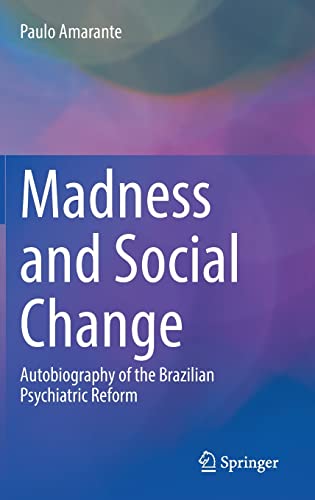Madness and Social Change: Autobiography of the Brazilian Psychiatric Reform 2022
دانلود کتاب پزشکی جنون و تغییر اجتماعی: زندگی نامه یک اصلاح طلب روانشناس برزیلی
| نویسنده |
Paulo Amarante |
|---|
| تعداد صفحهها |
86 |
|---|---|
| نوع فایل |
|
| حجم |
2 Mb |
| سال انتشار |
2022 |
89,000 تومان
اصلاحات روانشناختی برزیل از مدل مراقبت روانی اجتماعی ارائه شده در ایتالیا توسط روانپزشک فرانکو پاساگلیا الهام گرفته شد و با مشارکت گسترده جنبش های اجتماعی، مانند جنبش ضد پناهندگی و سایر جنبش های حقوق بشر مشخص شد. این فرآیند باعث ایجاد مدلی از مراقبت از سلامت روان مبتنی بر خدمات بهداشت روان منطقه ای درهای باز شده است که بر اساس اصل درمان در آزادی و همچنین سایر راهبردهای غیر نهادینه سازی هدایت می شود.
هدف اصلاحات روانپزشکی برزیل بیش از پیشنهادی برای بازسازی یا نوسازی مدل مراقبت از سلامت روان، ایجاد فضای اجتماعی جدید برای افراد و تجربه های متنوع جنون بود. اصلاحات روانپزشکی برزیل با هدف تولید فانتزیهای جدید، ادراکات اجتماعی جدید و معانی جدید برای این تجربیات، منجر به یکی از بزرگترین آزمایشها در زمینه غیرسازمانزدایی در جهان و اجرای گسترده مدل جدیدی از مراقبت از سلامت روان شد. مدل قدیمی پناهندگی محور با یک مدل دلسوز روانشناسی اجتماعی دموکراتیک جدید جایگزین شد.
The Brazilian Psychiatric Reform was inspired by the psychosocial care model introduced by psychiatrist Franco Basaglia in Italy and was marked by the broad participation of social movements, such as the anti-asylum movement and other human rights movements. This process gave rise to a model of mental health care based on open-door territorial mental health services, guided by the principle of treatment in liberty, in addition to other strategies of deinstitutionalization.
More than a proposal to restructure or modernize the mental health care model, the objective of the Brazilian Psychiatric Reform was the construction of a new social place for the diverse and singular subjective experience of madness. By intending to produce new imaginaries, new social representations and new meanings for these experiences, the Brazilian Psychiatric Reform led to one of the larger experiences of deinstitutionalization in the world and to the large scale implementation of a new model of mental health care in which the old asylum-centric paradigm was replaced by a new democratic psychosocial care model.




